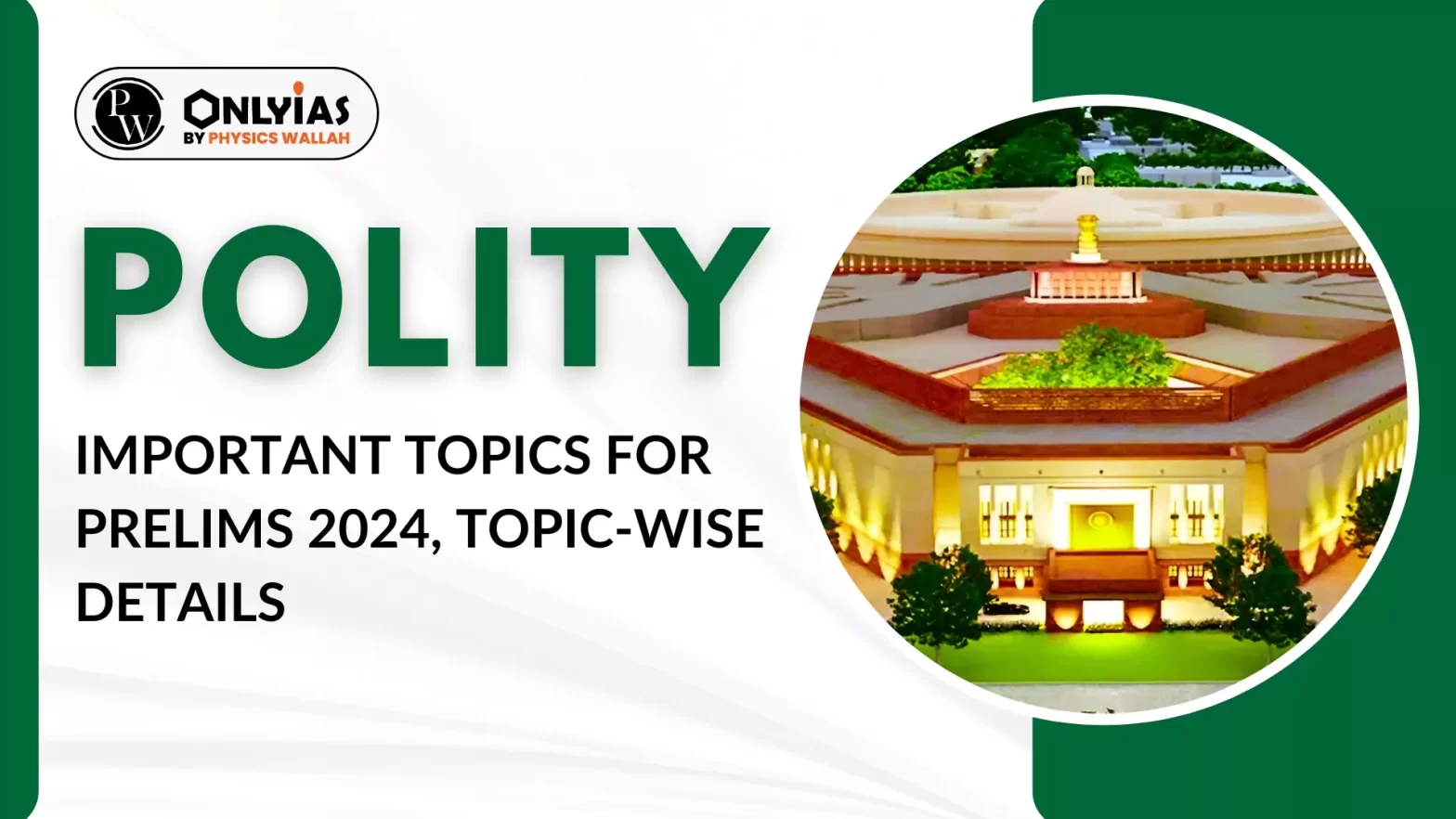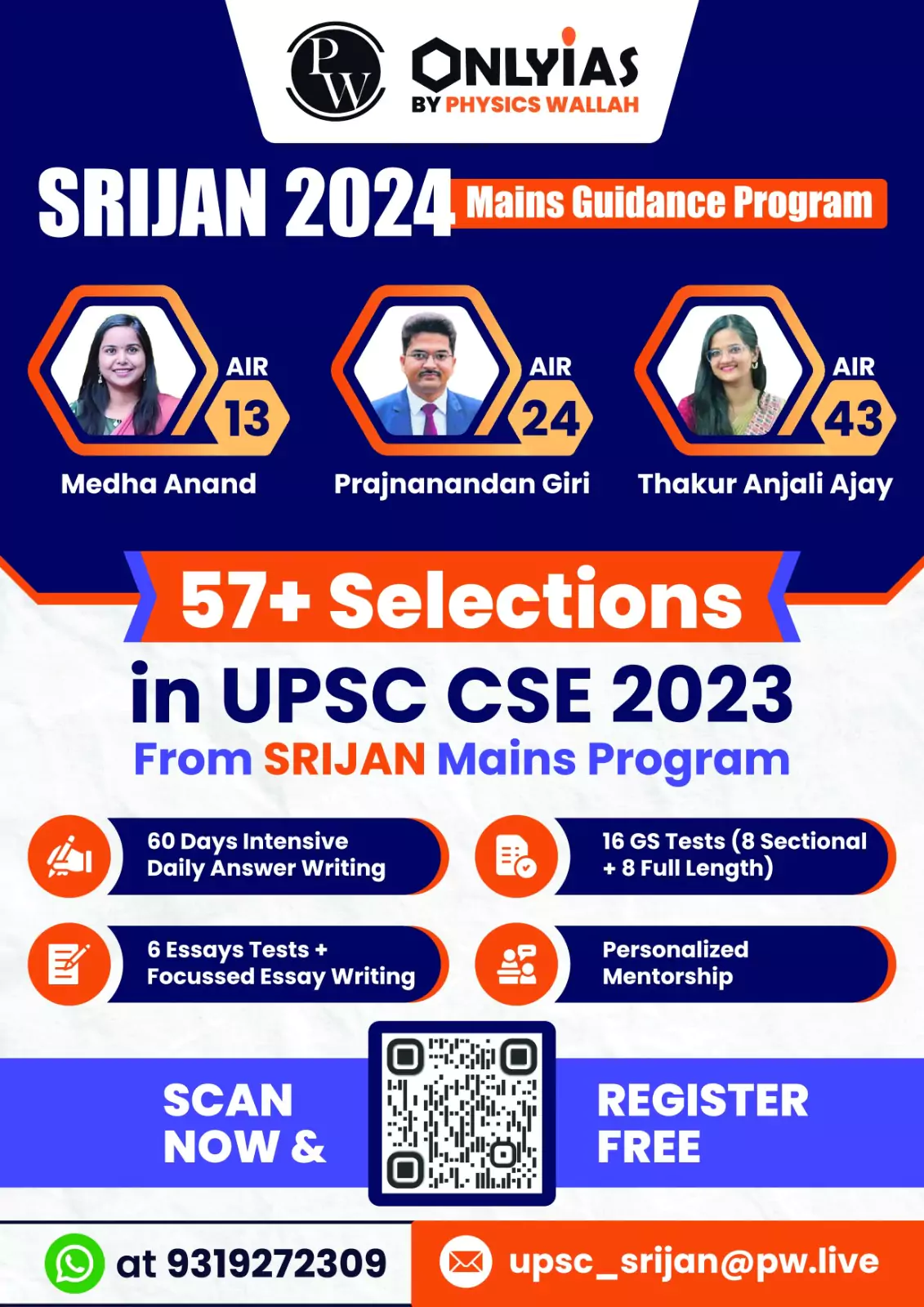Polity important topics for prelims 2024 can help aspirants preparing for prelims 2024. Check the complete list of Polity Important Topics for Prelims 2024.

Polity important topics for UPSC prelims 2024 refers to important topics that are most likely to be asked in the upcoming prelims exam. As Polity mainly deals with a fixed syllabus, identifying the most important topics will help candidates revise the most important static concepts.
UPSC prelims 2024 will consist of two papers: General Studies (Paper 1) and CSAT (Paper 2). Subjects such as Polity, History, Geography, Current Affairs etc will be asked in Paper 1 of UPSC prelims. Scoring well in Polity will help candidates perform well in general Studies paper 1 of UPSC prelims and clear cutoff marks.
Let us have a look at the Polity Important Topics for Prelims 2024, and the importance of these topics. The preparation strategy for the Polity Important Topics for Prelims 2024 is also given here.
Before knowing about the Polity Important Topics for Prelims 2024, the candidates should know the overview of the Polity subject in UPSC Prelims.
The following table consists of information about Polity in UPSC prelims 2024.
| Name of Examination | Civil Services (Preliminary) Examination 2024 |
| Polity Subject in UPSC Prelims | General Studies (Paper 1) |
| Average Weightage of Polity in UPSC Prelims | 15-17 Questions |
| Level of Difficulty | Moderate to Difficult |
| Relevance of Current Affairs | It is useful to predict most likely questions to be asked |
Important Polity topics for prelims 2024 will help candidates give emphasis to most probable questions that can be asked in the exam. Here is a list of Polity topics important for prelims 2024
| Topic | Sub Topic |
| Making of Constitution and its Features |
|
| Preamble |
|
| Union and its Territory |
|
| Citizenship |
|
| Fundamental Rights |
|
| Directive Principles of State Policy (DPSP) |
|
| Fundamental Duties |
|
| Amendment to the Constitution |
|
| Basic Structure |
|
| Parliament |
|
| Emergency Provisions |
|
| Union Government |
|
| Judiciary |
|
| State Government |
|
| Administration of Special Areas |
|
| Panchayati Raj and Municipalities |
|
| Constitutional Bodies |
|
| Non Constitutional Bodies |
|

Polity is one of the core subjects of UPSC prelims. Historically, 12% to 14% of the total marks in the UPSC CSE Prelims is based on Polity and Governance syllabus. Every year, 15-17 questions are likely to be asked from the associated topics. The following table contains the year-wise breakdown of the number of Polity questions.
| Year | Number of Polity Questions |
| 2023 | 15 |
| 2022 | 12 |
| 2021 | 16 |
| 2020 | 18 |
| 2019 | 13 |
| 2018 | 11 |
| 2017 | 22 |
As seen above, Polity is one of the core subjects in the UPSC exam. Apart from its academic weightage, it also plays an important part in the professional career of a civil servant. The tips for preparing well in Polity subject is as follows:
Preparing for UPSC Prelims 2024? Increase your score by enrolling in a quality UPSC Prelims Test Series – 2024 from Physics Wallah!
For beginners, NCERTs are the best books to build a knowledge platform. As you progress, read standard reference books such as “Indian Polity by M Laxmikant”.
Keep a track of current events in India. Identify the static concept associated with it. This will help you predict topics from which questions are likely to be asked.
Analyse PYQs and mark the themes from which UPSC examiner asks questions repeatedly. This will help you target important topics.
UPSC usually asks 15-17 questions from Polity and governance topics each year in prelims exam. However, the Weightage of Polity for UPSC Prelims 2024 may vary depending upon the difficulty of the paper.
Candidates have to revise factual information multiple times. They will also need to understand concepts given in Polity. In addition, practice as many tests as possible.
<div class="new-fform">
</div>